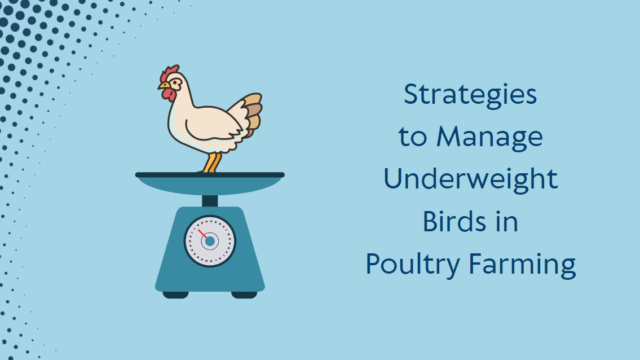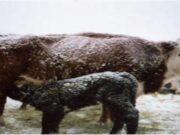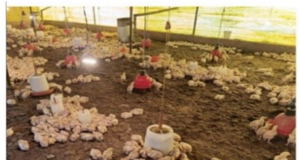
Managing the nutrition of layer birds is critical for ensuring optimal egg production, quality, and bird health. Several challenges can arise in nutrition management, affecting performance and profitability. Here’s a comprehensive guide on addressing these challenges and implementing effective solutions.
Nutrient Imbalance: A diet lacking in essential nutrients or with an imbalance can lead to poor egg production, weak eggshells, and overall poor bird health. The solution lies in
- Balanced Diet Formulation: Ensure the diet meets the specific requirements for energy, protein, vitamins, and minerals at different stages of the birds’ production cycle.
- Protein and Amino Acids: Provide adequate protein levels with a focus on essential amino acids such as methionine and lysine, crucial for egg production and quality.
- Calcium and Phosphorus: Supplement with adequate calcium and phosphorus to support eggshell formation. Use calcium sources like limestone or oyster shells.
- Vitamins and Minerals: Ensure sufficient levels of vitamins D3, E, and B complex, as well as trace minerals like zinc, manganese, and selenium to support metabolic functions and immune health.
Feed Intake Issues: Low feed intake due to palatability issues, stress, or disease can lead to nutrient deficiencies. These can be resolved with:
- Feed Quality: Use high-quality ingredients and ensure feed is free from contaminants such as mycotoxins.
- Palatability: Enhance feed palatability with natural flavors and fats to encourage consumption.
- Health Management: Regularly monitor bird health and promptly address any diseases or stress factors. Use probiotics and prebiotics to maintain gut health and improve feed efficiency.
- Feeding Schedule: Provide feed at consistent times and ensure feeders are clean and accessible.
Heat Stress: High temperatures can reduce feed intake and nutrient absorption, leading to decreased egg production and quality. To combat heat stress ensure:
- Cool Water Supply: Ensure an ample supply of cool, clean water. Add electrolytes to the water to help birds cope with heat stress.
- Adjust Feeding Times: Feed birds during the cooler parts of the day, such as early morning and late evening.
- Nutrient-Dense Feed: Formulate diets with higher nutrient density to compensate for reduced feed intake. Use fats and oils as concentrated energy sources.
- Vitamin C and E: Supplement with vitamins C and E to help reduce oxidative stress caused by high temperatures.
Egg Quality Issues: Poor egg quality, including weak shells, pale yolks, and off-flavors, can result from nutritional deficiencies. To improve egg quality supplement the diet with:
- Calcium and Vitamin D3: Ensure adequate calcium and vitamin D3 to improve eggshell strength. Provide a separate source of calcium in the form of grit or oyster shells.
- Carotenoids: Enhance yolk color by including natural pigments like marigold extract or paprika in the diet.
- Omega-3 Fatty Acids: Improve egg quality by adding omega-3 fatty acids from sources such as flaxseed or fish oil.
- Fresh Feed: Avoid feed that has been stored for too long, as nutrient degradation can affect egg quality.
Nutrient Absorption: Poor nutrient absorption due to gastrointestinal issues or suboptimal feed formulations can lead to deficiencies. To improve use:
- Probiotics and Enzymes: Include probiotics and digestive enzymes in the diet to enhance gut health and nutrient absorption.
- Particle Size: Optimize feed particle size for better digestion. Fine grinding of ingredients can improve nutrient availability.
- Feed Processing: Use pelleting to improve feed intake and nutrient digestibility.
Disease and Parasite Management: Diseases and parasites can severely impact nutrition uptake and bird performance. To improve performance ensure:
- Biosecurity Measures: Implement stringent biosecurity protocols to prevent disease outbreaks.
- Vaccination Programs: Ensure birds are vaccinated against common diseases.
- Regular Deworming: Schedule regular deworming to control internal parasites.
- Health Monitoring: Regularly monitor bird health and quickly address any signs of illness.
Feed Cost Management: Rising feed costs can affect the profitability of layer operations. For better profitability use:
- Cost-Effective Ingredients: Use alternative feed ingredients that are cost-effective but still meet nutritional requirements. Consider local grains or by-products.
- Precision Feeding: Utilize precision feeding techniques to minimize wastage and ensure birds receive the exact nutrients they need.
- Nutrient Optimization: Regularly review and optimize feed formulations based on current ingredient costs and availability.
Conclusion
Effective nutrition management for layer birds involves addressing a range of challenges, from nutrient imbalances and feed intake issues to environmental stress and disease management. By implementing strategic nutritional adjustments, maintaining high feed quality, and ensuring optimal health and environmental conditions, producers can enhance egg production, improve egg quality, and maintain the overall health and performance of their flocks. Regular monitoring and adaptability to changing conditions are key to successful nutrition management in layer birds.



























